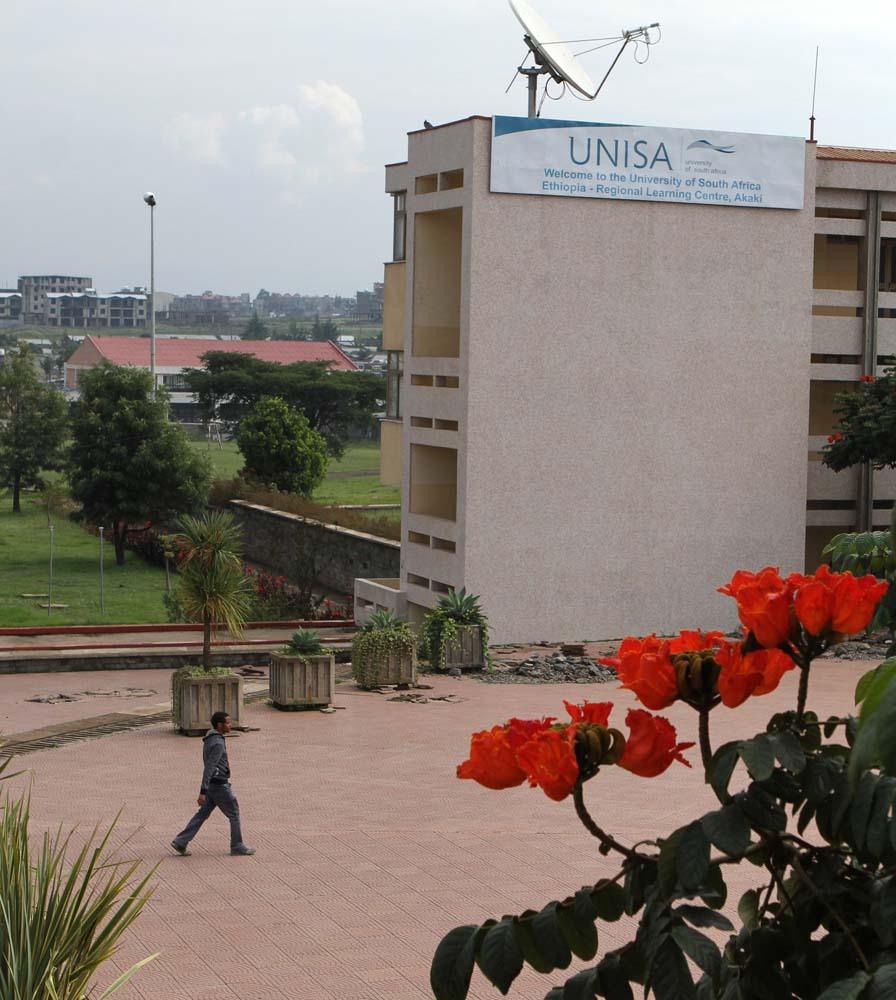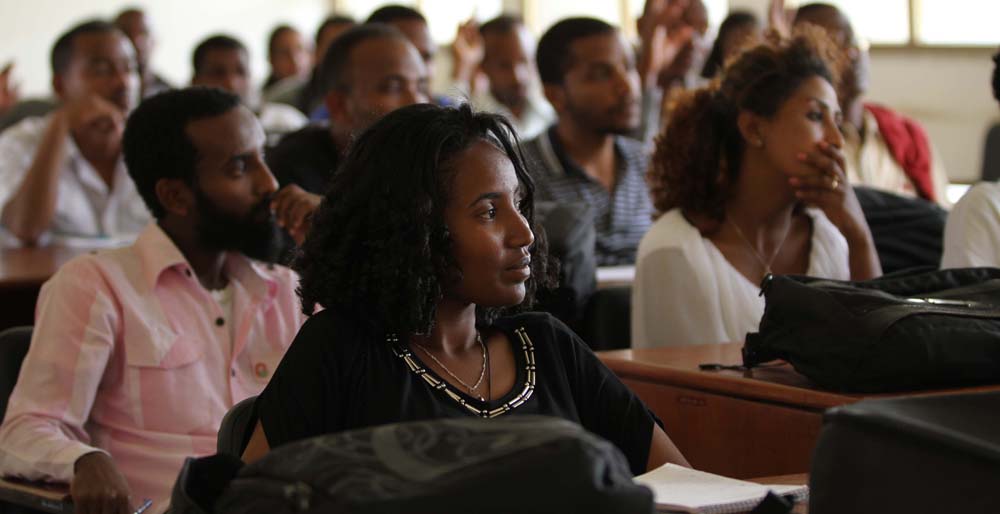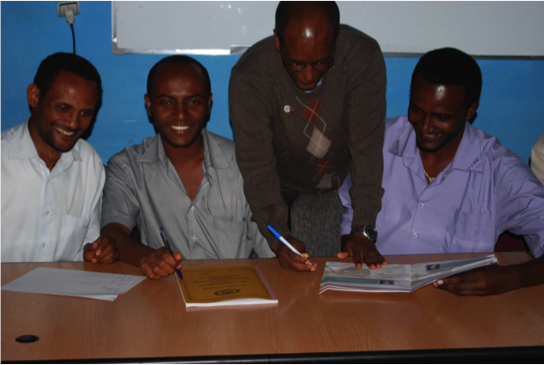By Karla Zadnik, OD, PhD
College of Optometry
 I was hosted by Dr. Seleshe Nigatu of the University of Gondar as I opened the research ethics class in the Summer Institute with a discussion of the Tuskegee Study. The study is the U.S.’s 1978 Belmont Report with its basic principles of respect for persons, beneficence/nonmaleficence, and justice. The class of almost 60 people from the University of Gondar and Addis Ababa University, along with other Ethiopian institutions of higher learning, had expertise ranging across medicine, veterinary medicine, economics, and pharmacy. The photographs depict the engaged students. In the late afternoon, the participants tackled their first two case studies, one on
I was hosted by Dr. Seleshe Nigatu of the University of Gondar as I opened the research ethics class in the Summer Institute with a discussion of the Tuskegee Study. The study is the U.S.’s 1978 Belmont Report with its basic principles of respect for persons, beneficence/nonmaleficence, and justice. The class of almost 60 people from the University of Gondar and Addis Ababa University, along with other Ethiopian institutions of higher learning, had expertise ranging across medicine, veterinary medicine, economics, and pharmacy. The photographs depict the engaged students. In the late afternoon, the participants tackled their first two case studies, one on 
reporting of results to an industry sponsor and the other an accurate analysis of a case of subtle plagiarism but plagiarism nonetheless. Tomorrow, the class tackles animal care and use in research and biorepositories (thanks to Donna McCarthy and Mark Merrick and their lecture materials).
The transition from Addis Ababa to Gondar was ably assisted by advice from Dr. Jodi Ford from the College of Nursing, who taught research methods at the University of Gondar earlier in July.











